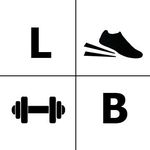There are three reasons why I would never use a meal service.
1. It Doesn’t Stick
This year I saw a Biglaw partner who had lost 35 pounds through only eating food delivered through a meal service. Last year, my father lost 35 pounds through the same method. Six months later, you couldn’t tell. Both had regained the weight they lost after stopping the meal service.
Unless you plan to stick with the meal service forever, it’s just another temporary diet—not a new way of approaching food—and you’ll re-gain the weight after you stop.
2. It’s Not Socially Practical
If the only food you can eat comes in a cardboard box (e.g., Freshly, Home Chef, or Veestro), or requires you to spend an hour preparing it (e.g., Blue Apron). What will you do when you’re having dinner with family or friends? Even if you’re at home, you’re likely not going to have the right quantity to serve everyone, and it doesn’t account for individual preferences. If you’re traveling or at a restaurant, the only socially acceptable option would likewise be to throw your diet out the window.
3. It Doesn’t Teach Nutrition
If the only food you can eat comes in a cardboard box (e.g., Freshly, Home Chef, or Veestro), or requires you to spend an hour preparing it (e.g., Blue Apron). What will you do when you’re having dinner with family or friends?
Even if you’re at home, you’re likely not going to have the right quantity to serve everyone, and it doesn’t account for individual preferences. If you’re traveling or at a restaurant, the only socially acceptable option would likewise be to throw your diet out the window.
Learning Nutrition
Lawyers don’t need to become nutrition experts, but will be far better judges of what foods are ‘healthy’ if they take the time to build a baseline understanding of macro and micronutrients. You don’t have to get into the debate of whether people should eat dairy, meat, or cut out carbs.
You can achieve a very healthy knowledge baseline even if you choose not to engage in such disputes. Start reading the “Nutrition Facts” section on food packaging. Look up some of your favorite foods on NutritionData. Find a blog, audiobook, or podcast by people who appear healthy.
After a while, you’ll start to pick up on common themes, develop a more intuitive sense about what foods are healthy, and probably stop believing a bunch of nutrition myths and half-truths.
For Lawyers
Busy professionals need convenient, intuitive, and simple nutrition habits. Learning nutrition a few facts a week can help you build an effective diet based on available foods. Add in some meal-planning and mental rules of thumb, and you can set yourself up for long-term weight loss or maintenance. If you want to learn more, read this post about how to manage weight as a lawyer.
Keep working on your LawyerBody.



